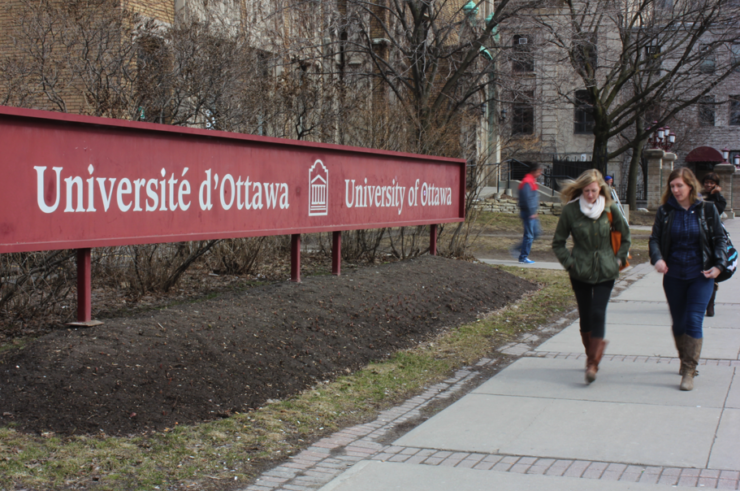With a 300 per cent increase in enrolment, the university is winning
Photo by Marta Kierkus
If you want to find out more about this story, check out our news section here.
This year, the University of Ottawa instituted a new student discount that awards French-speaking international students with tuition discounts of up to $15,000 a year.
While the university saw a 300 per cent increase in the enrolment of French-speaking international students largely due to this decision, the idea of establishing a language-based discount system has rubbed some non-French-speaking international students the wrong way.
While many already view this decision as an exclusionary tactic on the university’s part, I believe it is just a simple reflection of reality.
We live in a country with two official languages; one is the clear majority, while the other is the clear minority. So, it should come as no surprise that the university, seeking to bolster its international reputation and shore up its French-language student numbers, has implemented this kind of student discount.
Francophone culture has long enjoyed a special sort of enshrined status in Canada, not only because of the historical influence France had in the country’s seminal years, but also because it holds minority status in respect to the Anglophone majority. Canada is also a country that is fortunate enough to have grants, awards, and bursaries for all manner of things in academia, the arts, and research, with specialized opportunities for various visible cultural, ethnic, and religious minorities.
It should come as no surprise that the university is slanting its admission incentives to help maintain the ever-diminishing Francophone presence in Canada.
Since Francophone culture is a long-standing component of the country, one that is in perennial danger of an impending Anglo-inundation, it is to be expected that institutions such as the U of O will cater to this demographic as long as it remains the underdog in the current cultural and linguistic backdrop.
This is not to be construed as a value judgment, nor should it be seen as an attempt to assume some sort of superiority based on numbers. Rather, it is a dispassionate evaluation of these numbers—the same kind of statistical pragmatism the university demonstrated by integrating this discount.
Both the school and the country as a whole benefit from any person who can more readily engage with society and individuals. This benefit can be social, fiscal, cultural, or some combination of the three. In this case, anyone who ignores the practicality of having students who are already equipped to deal with at least one of the country’s two official languages is pandering to an idealized cultural mosaic.
While the university (and society in general) largely benefits from cultural diversity, let’s not omit the fact that this new student discount is neither broad-spectrum language assassination, nor is it discrimination on the part of the university—this is simple pragmatism, and nothing more.
To read our news story on the tuition discount for French-speaking international students, click here.





